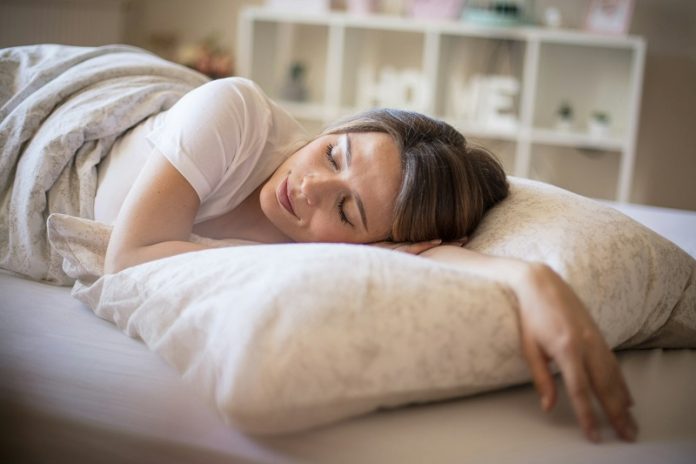
A new study from the University of Tsukuba in Japan has found that combining light physical movement with simple mental tasks—known as multitask exercise—can help older women sleep better.
These exercises activate the brain and lead to deeper, more restful sleep.
As people age, sleep quality often gets worse. One key sign of good sleep is something called “delta power,” which reflects how deep and restorative the sleep is.
Delta power increases when people are active during the day, both physically and mentally.
However, delta power tends to decrease with age, and for women, hormonal changes can make sleep problems even more common.
To understand how multitask exercise might help, researchers studied 15 healthy older women living in Tsukuba City.
The women took part in five different sessions: two types of single-task exercises (physical activity only), two types of multitask exercises (physical activity plus a thinking task), and a resting session where they just sat.
Some of the exercises were low intensity, while others were more vigorous.
The researchers measured brain activity before and after each session, focusing on the prefrontal cortex, which is involved in thinking and planning.
They also monitored the women’s sleep that night using a detailed sleep test called polysomnography.
The most exciting finding was that low-intensity multitask exercise led to better brain activity right after the session and higher delta power during sleep.
In simple terms, this means that light exercise combined with a mental challenge helped these women sleep more deeply that night.
This is an important discovery because it shows that you don’t need to do intense workouts to improve sleep. Just doing something light, like walking while thinking or solving simple problems, can make a real difference. It’s also more practical and easier to stick with, especially for older adults.
The researchers believe that multitask exercises could be a promising way to help older people, especially women, improve their sleep without needing medicine. These findings may help guide the creation of new exercise programs that support healthy aging by boosting both brain activity and sleep quality.
The study was published in the journal NeuroImage and could be a step toward developing more effective, easy-to-follow routines that promote better sleep in later life.
If you care about sleep, please read studies about herb that could help you sleep well at night, and these drugs could lower severity of sleep apnea by one third.
For more health information, please see recent studies that coffee boosts your physical activity, cuts sleep, affects heartbeat, and results showing how to deal with “COVID-somnia” and sleep well at night.


